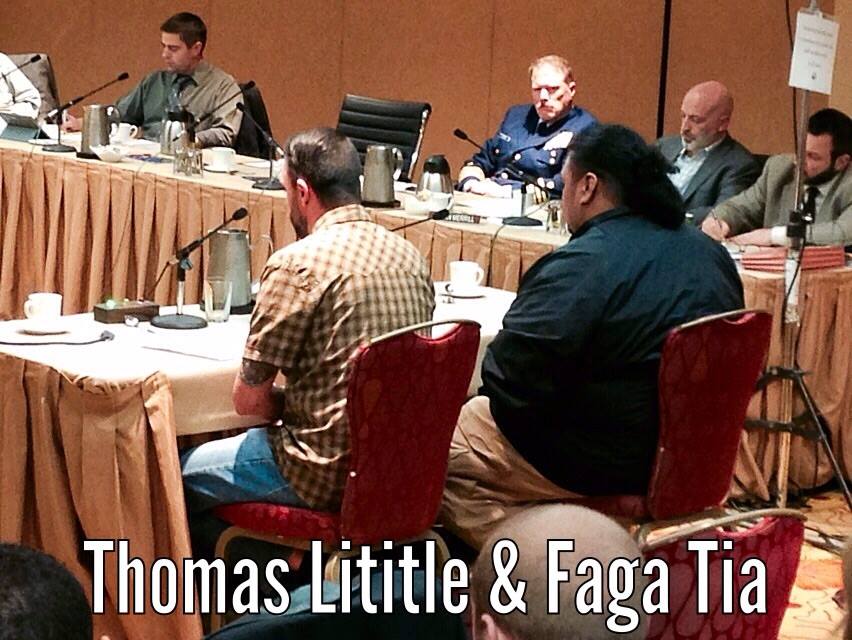NPFMC Testimony: Little
North Pacific Fishery Management Council ~ 221st Plenary Session
Seattle Renaissance Hotel February 6, 2015

Hello members of the council and fellow members of the fishing community. My name is Thomas Little and I am here today to express my disagreement with the idea of reducing halibut bycatch for the Amendment 80 trawling fleet. I am also here to represent my family and friends in the fishing industry who cannot be here because they are out at sea working hard to provide for their families. I have been working onboard the US Intrepid, a trawler in the fleet of the Seattle based company Fishermen's Finest, going on 5 years now. The work is hard and the hours are long, but I love my job and the experiences I share with my 70 plus co-workers. I also love the fact that with this job, I have the ability to provide a comfortable lifestyle for my wife and 4 children. When I heard about the debate to lower our halibut quota, which could very well endanger my only source of income to support my family, or at the very least reduce that income, I felt that I would be remiss not to come before the council and present my opinion on the matter, along with some of my experiences to help them to make an informed decision that will benefit all parties involved.
During the time that I have worked in the fishing industry, one thing has become very clear to me. We take our halibut quota very seriously. The trawling industry has made many technological advances to aid in being good stewards of our fisheries. Some examples of these advances include the use of cameras in our nets while trawling, and the use of different meshes and an excluder to help reduce halibut bycatch. Now, I do not work on the deck, so obviously I do not know all the technical terms and the science behind these advancements, and I am sure you will hear from other people who can provide you with this information. I do know that in the past, we took part in an experiment, where with the assistance of scientists and government observers, we sorted our hauls on deck, releasing all halibut back to the sea prior to dumping our hauls into their holding tanks. This helped to guarantee that the majority of the halibut we did catch lived to grow bigger and and stronger, thus strengthening the halibut population. It is my understanding that the results of this experiment were favorable, and this process is being considered to be put in place as standard operating procedure for the Amendment 80 trawler fleet, as early as this year.
In regards to sustainability of halibut, it has become obvious to me and many others in my industry that the halibut population seems to be multiplying, rather than dwindling. In conversations with government observers, I have heard this stated numerous times. I have also heard that the main problem the halibut fleets are having is that a lot of the fish they are catching is under their 32 inch size limit, which means they have to throw a large portion of their catches back. So, it seems to me the problem is the size of the fish, not a lack in the amount of fish. Perhaps reducing the size limit for the halibut fleets would help with their mortality rates, and also help them to boost their output and make better profits.
I would like to present one more item to you today. If the halibut are getting smaller, that could mean that they have to much competition for food. A lot of the fish that we catch on the trawlers is fish that compete with halibut for food. Reducing the bycatch quota for the trawlers could actually be more harmful to the halibut population than helpful. By reducing our halibut quota, you will also be reducing the amount of competing fish we can catch, which will not only shorten our fishing season, reducing the amount of food we are able to provide the world while reducing the number of jobs in the trawling industry, but will also leave more fish in the sea to compete with halibut for food. It seems to me that this would only further issues with size and sustainability of the halibut population.
I want to thank you all for taking the time to listen to me today, and I hope that what I have shared with you today will help you come to a decision that will be fair and beneficial to all members of the fishing community, while also helping us to continue to be great stewards of our fisheries, ensuring sustainability for future generations. Thank you all, and have a great day.
Read More on this issue (content gathered by FF):